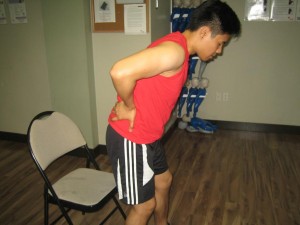The spinal column is composed of the vertebrae and separated by the soft sponge-like discs. The spinal column houses the spinal cord which is a collection of nerve fibers that traverses from the brain up to the bottom part of the spine. Take note that at every level of each disc, the spinal nerves branch off from the spinal cord and travel to the peripheral areas of the body and control various aspects of movement and sensation.
It is important to note that these subtle spinal nerves are prone to pressure being impinged on them by the neighboring soft tissues or spinal joints that have decomposed. Once a spinal nerve has mild pressure applied on it, various symptoms are likely to occur.
Pain
The symptoms of a pinched nerve often occur first in a pattern of pain determined by the nerve being compressed. The pinched nerve can develop in any part of the body but often occur in the lumbar spine. This can cause pain to radiate or travel to the back part of the leg which is a condition called as sciatica. The disc herniation or bone spurs instigated by osteoarthritis often results to pinched nerves. Once either of these places pressure on a spinal nerve, pain can manifest at the site of pressure or radiates along the path of the nerve. Sneezing or coughing will worsen the pain. Additionally, nerve pain is often described as stabbing or burning pain unlike with the dull ache with muscle strains. When it comes to providing the right pain management measures, it is vital in order to provide relief to the individual. All you have to do is to enroll in a course in first aid today so that you are prepared.

Muscle weakness
Every spinal nerve also supplies motor function to a muscle or group of muscles. Once the nerve is compressed, the motor function in these muscles can be affected and muscle weakness occurs. An individual who suffers from muscle weakness due to a compressed nerve in the cervical spine will have diminished grip strength in the hands.
Numbness and tingling sensation
Once a spinal nerve that is responsible for the normal sensation is compressed, it can lead to altered sensation such as tingling and numbness. The altered sensation along with the radiating pain is called as radiculopathy. Take note that radiculopathy often causes additional symptoms in the lower legs and arms than it does on the spine or at the site of the original pressure.
Muscle spasm
The muscle spasms in the back can be often accompanied by pinched nerves and can cause a lot of pain. In most cases, a doctor will prescribe muscle relaxants to help break up the muscle spasms and the cycle of pain they contribute.
